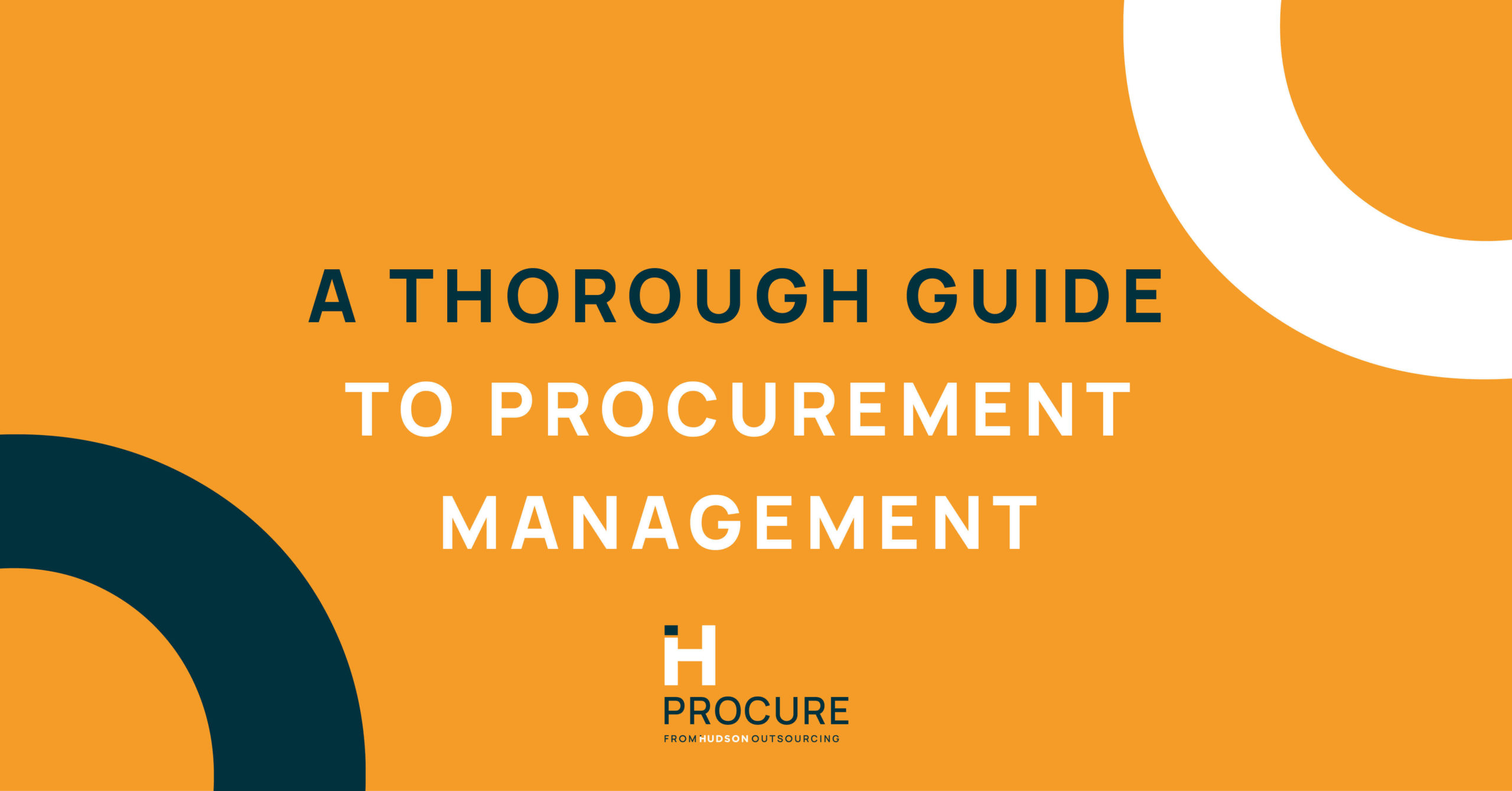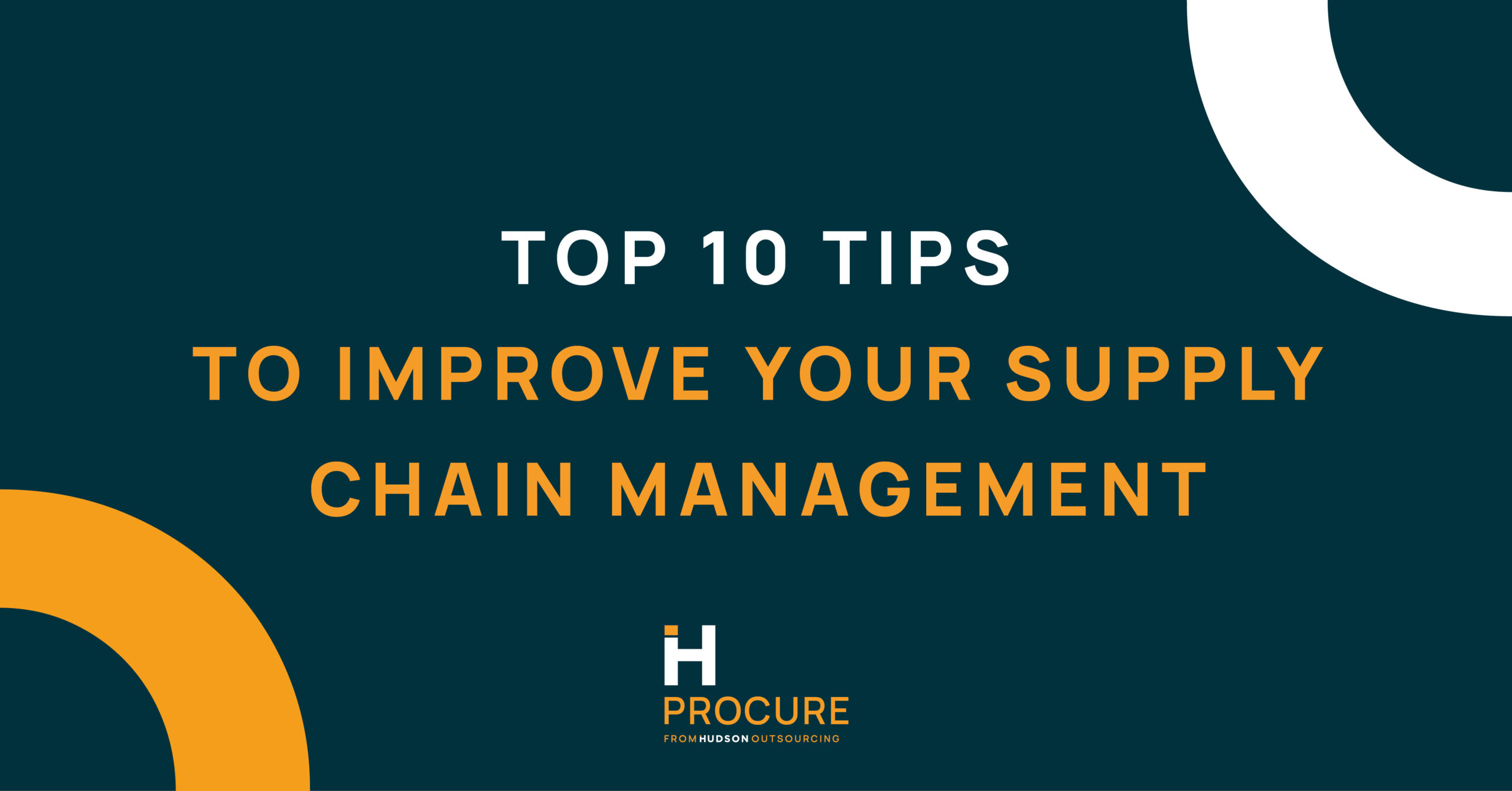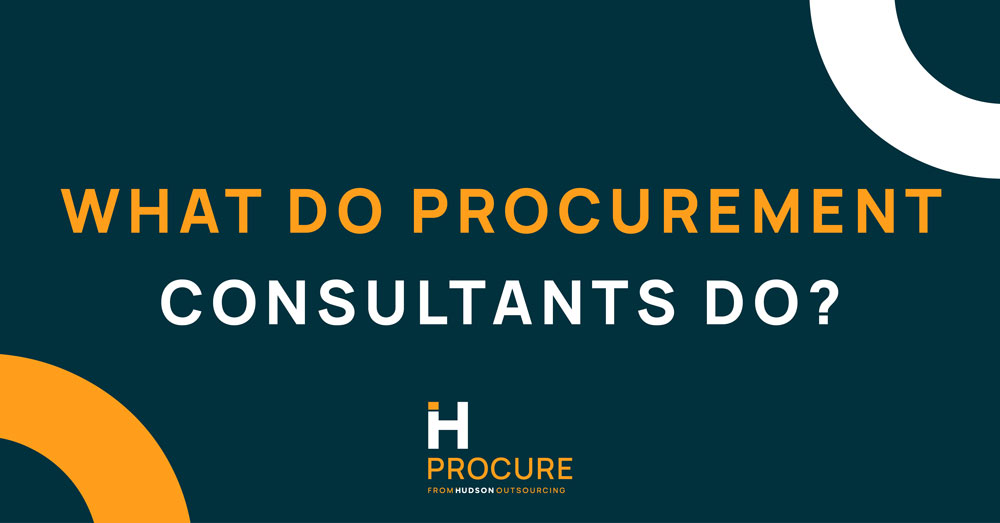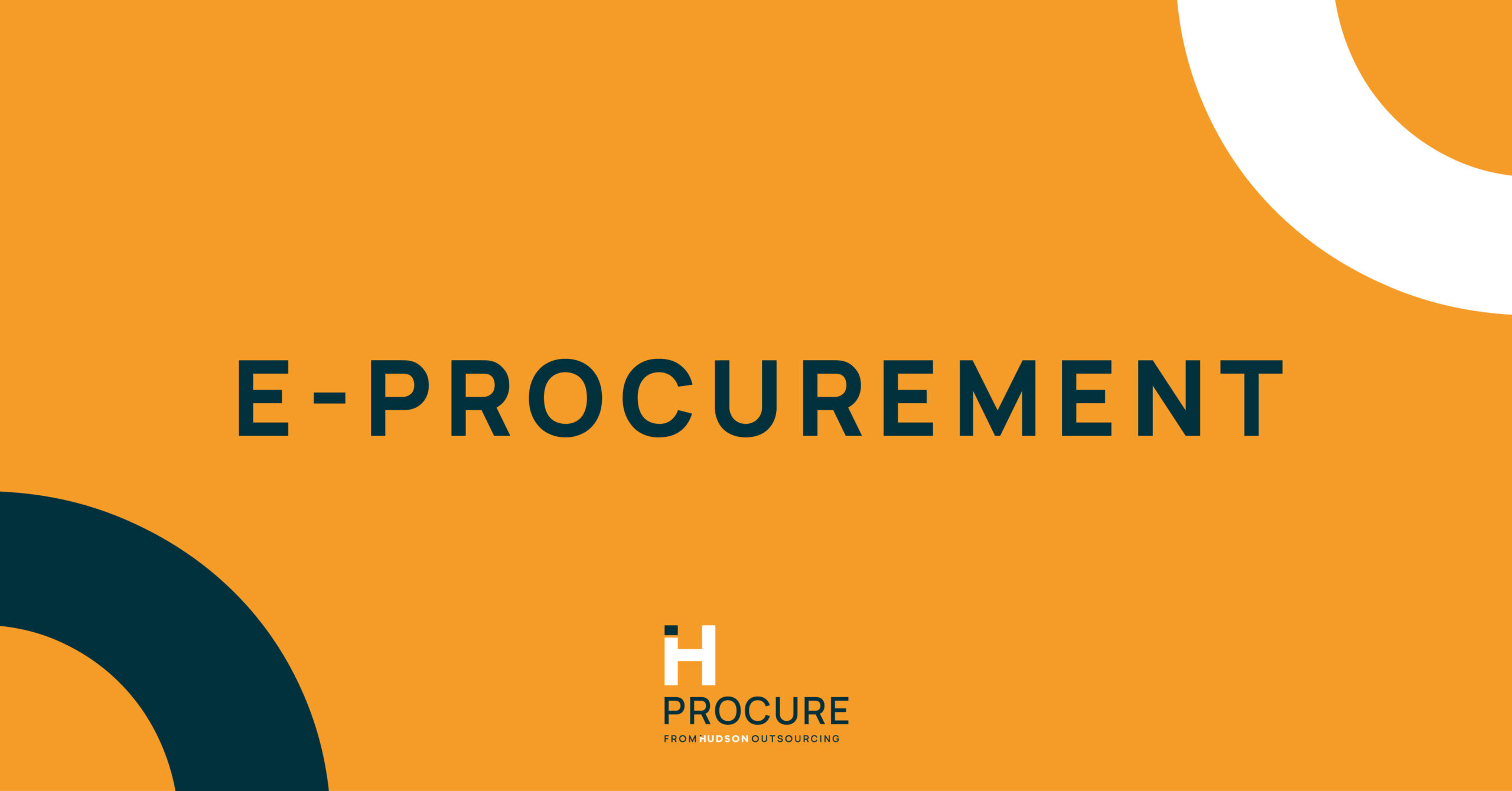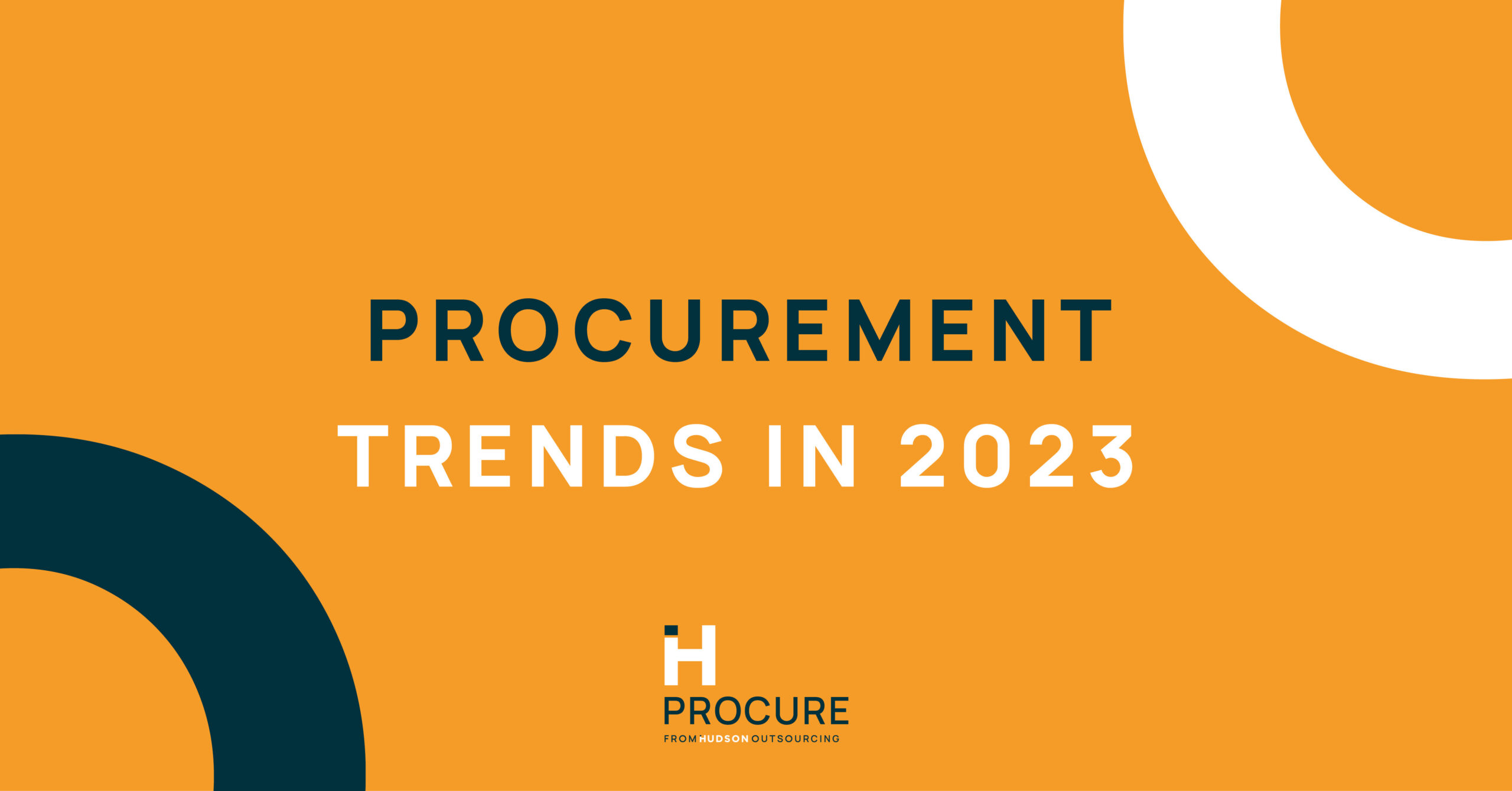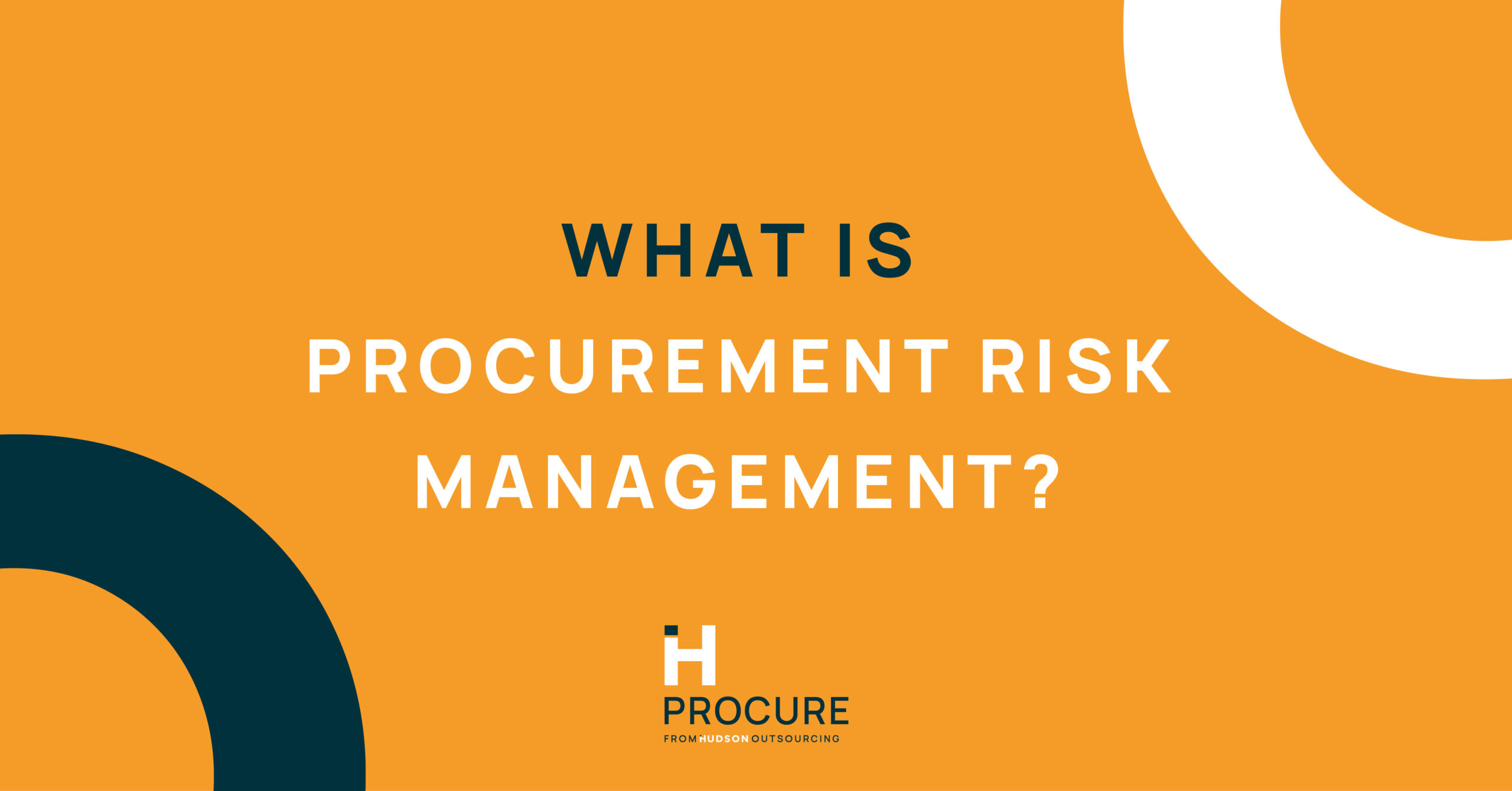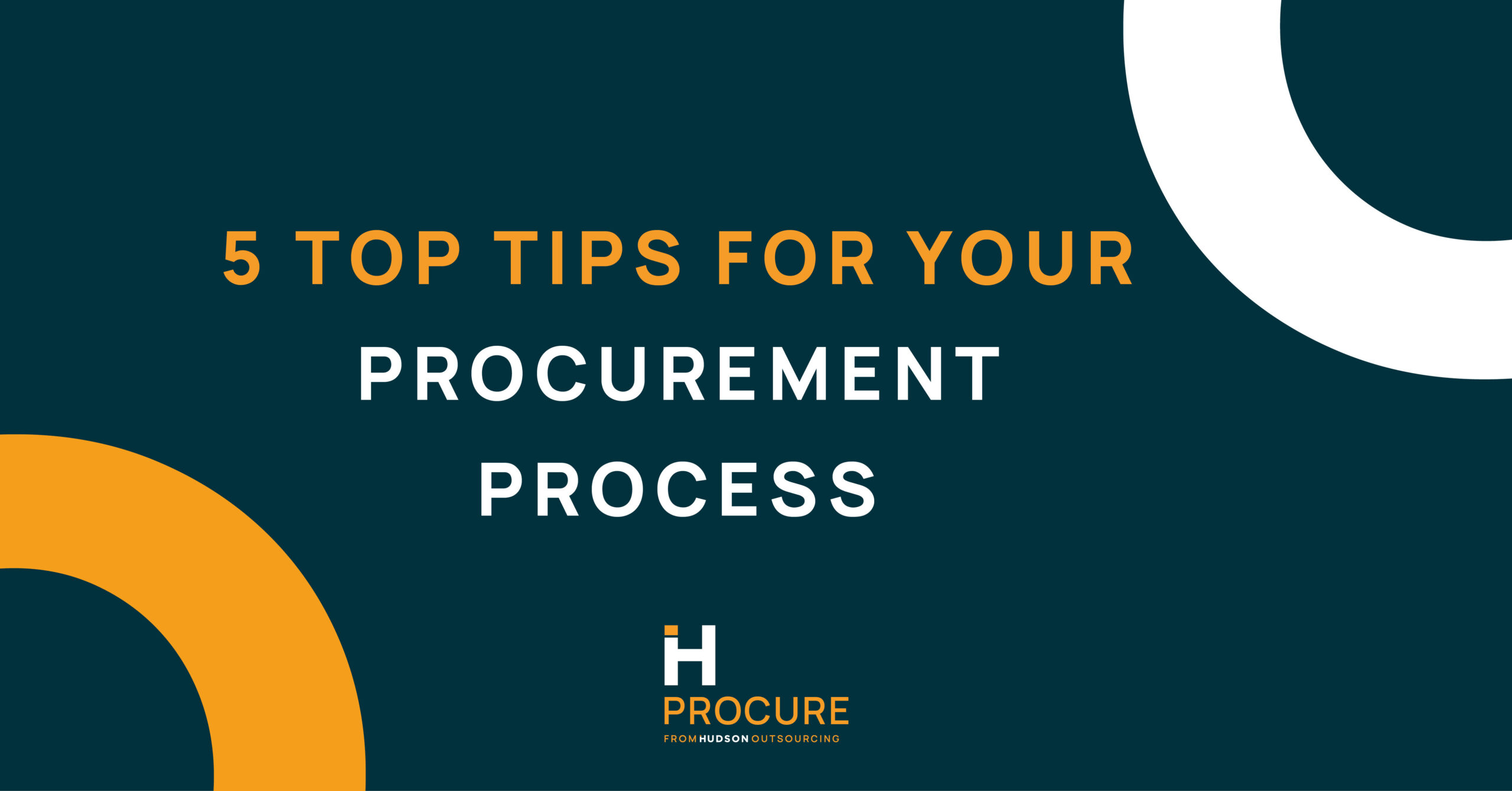Everything you’ve wanted to know about procurement management
Procurement management (also known as contract management) is an integral component of the procurement process. Some would consider it to be making phone calls and arranging the purchase of materials. However, it’s much more than that. To most purchasing professionals, it’s the strategic approach to optimising spending and acquiring goods or services from suitable suppliers.
This is where Hudson Procure comes in.
We have serious experience with procurement management. With our help in this comprehensive blog, you’ll be equipped to manage your procurement processes in no time.
You can also get in touch with us today, to find out how our specialists can help you streamline your procurement management.
What is procurement management?
There are many things involved in procurement management, including:
- Maximising value/minimising risk through the contract terms
- Avoiding supplier delays/inconsistencies
- Dealing with supply chain issues/material quality
- Preventing overstocking/stockouts
- Specifying the company’s needs
- Conducting market research
- Verifying supplier qualifications
- Negotiating contractual obligations
- Prompt payment to suppliers
- Close management of the delivery process
- Reviewing the goods
- Enhancing/maintaining supplier relationships
- Forecasting financial records
- Competent record-keeping.
As you can see, procurement management can be rather complex. As your business advances and grows, it can demand a higher level of industry knowledge from your Procurement Team.
Why is procurement management important?
If we look at the modern business world, most companies either outsource or are dependent on third-party organisations. Either way, without proper procurement management, using third parties, poses a significant risk. Relying on ‘good fortune’ for procurement just isn’t good business practice.
A company that doesn’t invest in procurement management (in favour of sales/production planning) can eventually encounter inefficient/flat-out harmful purchasing practices. It will also be beneficial when it comes to negotiating with your suppliers for better value for money.
Having a procurement strategy in place can help save you money, time and resources. They can drive down costs that ultimately be used elsewhere in the business. Not only that, procurement management can put into place, efficient and innovative processes.
The 3 types of procurement
The way you strategize your procurement will depend on the type of procurement method you require. There are typically three types of procurement which we will briefly explore. These are:
- Direct procurement – This method of procurement is focused directly on the materials and products that you use in maintenance, sales, and retail. Basically, anything that contributes to your end goal. This will include your contracts with suppliers.
- Indirect procurement – All aspects of the products and services needed to run a company are included here. This can range from office supplies to travel expenses and marketing costs. This is where tail spend can occur, which, if not properly managed, can cause serious procurement issues down the line. So, whilst this form of procurement doesn’t directly affect your end-goal focus, it still plays a vital business role.
- Service procurement – This form of procurement involves mainly services and people. You could be dealing with contractors, consulting firms, agencies… The list is endless. It could be that you decide to run a company event. Therefore, you will require services to make this happen. This is where service procurement comes into play.
What if I don’t have a dedicated Procurement Manager? – 4 phases of the procurement process
When it comes to procurement management, you need to have a procurement process set up. This is regardless of whether you have a dedicated Procurement Manager or not. It needs to be an airtight procurement process, commencing well before the contract start date. Your strategy should be flexible, being able to adapt to both large and small contracts.
1. Initial budget and the definition of your needs
Think about what you need as a company. Outline all the procurable goods or services that you could need in as much detail as possible. What’s the quantity here? Conduct some market research for your product. Is there an average price for the procurable goods? Is there a time frame that the suppliers hold to? What is your threshold when it comes to quality? What level of quality are you prepared to accept? How would you go about measuring that?
If you have stakeholders, you should be engaging with them.
Simply put, they’ll have vital information and questions relating to this stage of the procurement process. What are their expectations for the contract? What does each of them need? The sooner you’re building relationships with these groups and figuring out their functions and needs, the better.
You don’t know it yet but you’re unknowingly budgeting by defining three aspects of your procurement:
- The products
- The demand
- Your spending threshold.
At this point in procurement management, you’re making key decisions so that the rest of the contract runs as smoothly as possible.
Above all, ensure that your contract contains valid, articulate information, as this contract will become legally binding.
2. Zeroing in on the right supplier
You’ve defined your needs and figured out the initial budget. Now you’re developing your procurement strategy.
This is where most organisations would produce a selection questionnaire or PPQ. Everything you’ve discussed beforehand, regarding the details of your contract, would be reiterated here. Creating a detailed specification is crucial here to ensure consistency on pricing, quality, and functionality. This also helps the suppliers in reducing the area for error.
A PQQ and SQ can ask the supplier about the following:
- Area of service
- Range of products
- Financial stability
- Reliability
- Customer service
- Quality
- Social value
- Social responsibility
- Availability
- Capabilities.
These initial documents help to shorten the list of suppliers down considerably until a short number of companies are left. If you feel unsure about the validity of suppliers, it’s wise to check online through business directories. This helps to ensure whether the company has the capacity to actually fulfil your requirements.
3. Tender documentation
You’ve received responses from suppliers through PQQs/SQs. From this list of approved suppliers (ASL), you’ve shortened that down further, until you have a manageable number of suitable candidates. This is where you send off the formal documentation. Normally, this would take the form of an Invitation To Tender (ITT), or a Request for Quotation (RFQ). For the suppliers, this is the heart of their process and it’s where they would invest the most time and money. Ultimately, the government requires any tender documents to be transparent and structured. When it comes to public buyers, this could also include presentations and interviews with the bidders.
Evaluation criteria in the public sector
Pre-defined criteria will measure the remaining suppliers, usually utilising a process known as MEAT. Broken down, this means the most economically advantageous tender. Most people think you’re choosing the cheapest tender, but the evaluation balances the best price with quality. All tenders in the public sector need to comply with the Public Contract Regulations 2015 (PCR 2015). Adhering to these regulations reflects ‘best practice’ from you and inspires confidence in the supplier. If you have a legal team, it’s advised that they review the evaluation criteria. During this process, you’ll need to raise clarifications with the bidders. Alongside this, suppliers will ask clarification questions.
4. Award decision
You’ve collected all the tender documentation and identified the most economically advantageous tender. Now it’s time to make the award decision. Due to the PCR 2015, you need to inform all of the suppliers of your decision. This generally arrives in the form of a standstill letter, and should contain:
- The details of the winning bidder
- Characteristics and relative advantages of the winning bid
- Evaluation approach and scoring criteria
- The bidder’s scores against the winning bidder’s score
- For SMEs, a set of data to convey information more compactly
- Specific examples from the bid to make feedback more understandable.
In some cases, you may need to send standstill letters to suppliers from earlier in the procurement process.
By sending this notice, you’re providing the grounds for a more competitive market in the future. The notes enclosed (by the moderator and evaluator) should be sufficient in communicating how each bidder achieved their score.
5 tips for pristine procurement management
1. Embrace automation
Across each industry, automation is revolutionising efficiency, and procurement shouldn’t be any different.
Technologies such as AI are inherently streamlining procurement. As procurement management encompasses more roles, tasks and considerations, artificial intelligence will become an integral component in increasing your capabilities.
Organisations with machine-learning technology can monitor the effectiveness of each organisation within the supply chain. With this in mind, procurement with A.I. holds suppliers accountable, whilst helping to ensure peak standards. As well, supplier relationships can improve with the use of embedded social messaging. This enables deeper collaboration between the supplier and the buyer, and real-time visibility into risk factors.
2. Understand your suppliers
With the advent of global supply chains, it’s not fantastic business practice to hope for the best with your suppliers. So, how do you achieve a closer understanding of your supplier? Integrated action plans and flexible surveys. These two methods will generate insights into your supplier. Through these, you can address deficiencies, and ensure the suitability of your contracts. Ultimately mitigating risk through these processes will see your procurement run far more smoothly. It will also be beneficial when it comes to negotiating with your suppliers for better value for money.
3. Shore up your data
For most companies, utilising AI isn’t enough, as there’s a missing component in the effectiveness of AI… quality data. Companies that use new technologies alongside quality data usually experience success. After all, AI is machine learning technology. So, the more data you provide, the better equipped it will be to assess your procurement processes.
Even without AI, collecting information, such as spending data, can be an absolute gold mine in savings for your business.
4. Remain flexible
Procurement departments are in a good place to help adapt their companies for the future. With the instances of rapid innovations, market shifts and new reforms, procurement management is needed more than ever. The best example of this is cloud-based solutions, which offer numerous advantages to companies and their procurement departments. However, with the changing needs of companies, you may be restricted by your chosen software. So, it’s best to have a future-focused approach when you’re selecting the software you need.
5. Encourage innovation from your suppliers
Suppliers can be a serious source of innovation, but they’ve rarely been tapped for this. With the right collaborations with suppliers, you can greatly reduce costs and increase the stature of procurement within your organisation.
Still struggling with your procurement management – Enter a Procurement Consultant!
There is no shame in admitting when you need help. Outsourcing consultancy services to help with your procurement management will work in your favour.
To help with your procurement management, a consultant can offer the following support:
- Evaluate your spending behaviour
Consultants are experts in their field and have plenty of experience with buying goods and/or services. By evaluating your spending behaviour, they can implement changes to help you make improvements.
Procurement in general can be extremely time-consuming. However, when you outsource procurement consultancy services, a Procurement Consultant will handle everything for you. Ensuring you have strong procurement management strategies in place, whilst you put your focus on other business needs.
- Support your Procurement Team
Maybe you already have a procurement team in place or are looking to build a team. A Procurement Consultant can support this also. Offering guidance on the full procurement management process. Sharing their full expertise with you, so you can lead your procurement team.
In summary
Procurement management can seem overly complicated, but we hope that through this blog, you’ve discovered clarity and focus. We’ve covered quite a bit of material, so how about a recap?
What is procurement management?
The management of specific elements of the procurement process.
Why is procurement management important?
It can represent serious competitive advantages for a company if the procurement process is well managed. Improving business efficiency and saving you money.
The three types of procurement:
- Direct procurement – Materials & products you use in sales
- Indirect procurement – The aspects needed to run a company, office supplies, travel expenses, marketing costs etc
- Service procurement – Services & contractors.
4 phases of the initial procurement process
- Initial budget and definition of your needs – Understanding the product, your demand and your spending threshold.
- Zeroing in on the supplier – Utilising your initial tender documents (PQQ/SQ) to sharpen your search for a suitable supplier.
- Tender documentation – Using weighty tender documentation such as an RFQ/ITT to determine the successful supplier.
- Award decision – Ensuring documentation is sent to the suppliers, relating to their strengths and weaknesses in their bids.
5 tips for pristine procurement management
- Embrace automation – Ensuring the inclusion of cloud-based solutions and AI in your procurement process.
- Understand your suppliers – Using integration action plans and flexible surveys to better understand your suppliers.
- Shore up your data – Harvesting proper data so that AI and other technologies can produce fantastic spending analysis.
- Remain flexible – Make sure that the tech you use is properly-suited to your procurement process. Don’t use restrictive software.
- Encourage innovation from your suppliers – Get suppliers to work on innovation, in some cases collaborating with them to further drive costs down.
What if you’re still unsure when it comes to procurement management?
Then why not consider outsourcing a procurement consultant?
Procurement management can become quite time-consuming due to its complexity. So, why not outsource these services?
Just some of the things a procurement consultant can support you with:
- Evaluate your spending behaviour and offer valuable improvements
- They’ll save you time, so you can focus on other business needs
- Support your Procurement Team, to help you build a strong in-house tea.
How can Hudson Procure help your business?
At Hudson Procure, our procurement experts have nearly two decades of experience. No matter what kind of support you’re looking for, we can help.
Procure Consult
With Procure Consult, we offer support with tender management and ad-hoc procurement consultancy. Our expert team will manage the end-to-end procurement process or offer assistance at any stage, as and when required.
Procure Health Check
With Procure Health Check, we’ll conduct a full review of the strategic and operational procurement processes within your organisation. We’ll identify the areas that need improvement and help you drive greater value from the procurement process.
Procure Analyse
The purpose of Procure Analyse is to conduct a high-level analysis of your spending activity. We’ll help you understand your current purchasing behaviour and highlight areas that can deliver greater value. Procure Analyse is also offered as part of Procure Health Check or as a standalone service.
Procure Outsourcing
With Procure Outsourcing, we deliver a range of procurement solutions on an outsourced basis, completely bespoke to you. This can range from delivering multiple tender projects as a package to delivering the full procurement management function of your organisation.
Procure Post
Are you trying to find a supplier for your project? Post your tendering opportunity onto any of our 11 sector-specific portals for FREE with Procure Post!
Housed by our sister company, Hudson Discover, our portals host thousands of tendering opportunities for organisations of all sizes. We’ll help you identify your requirements and find the most suitable suppliers for your business.
Get in touch for a consultation and find out how we can help your business grow.
Check out our other blogs for further Procurement Insights:

